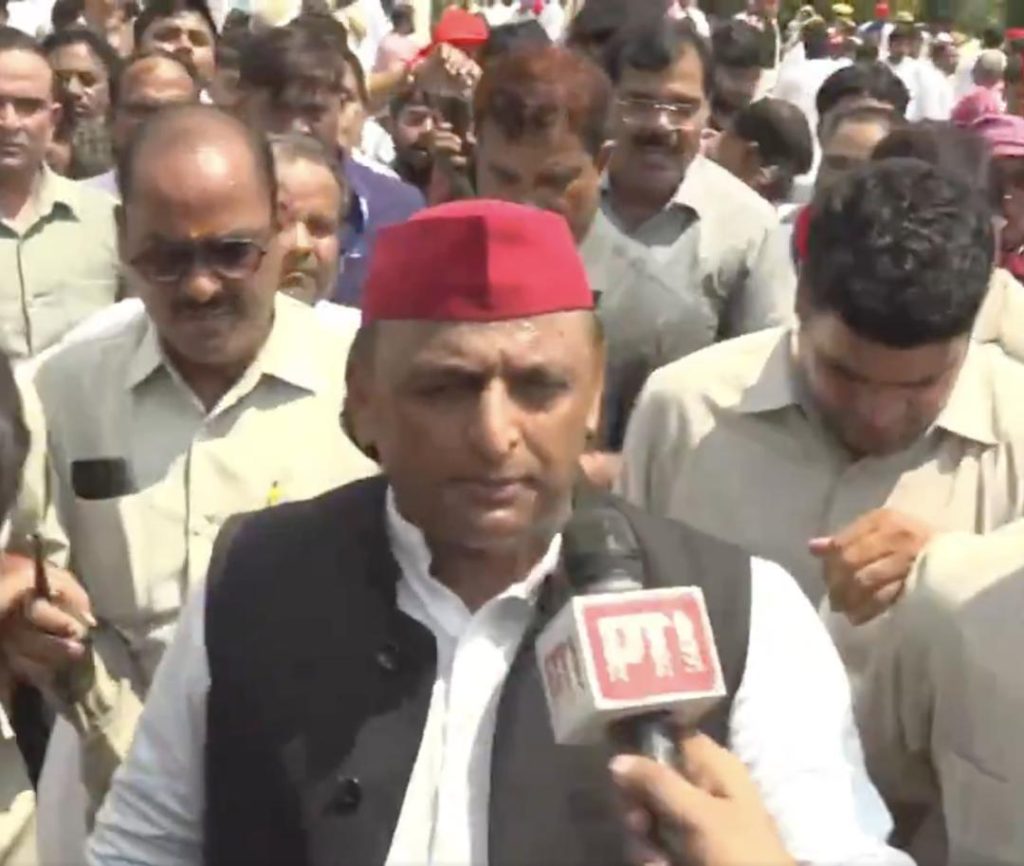
RSS’ Ideology Doesn’t Align with Secularism: Akhilesh Yadav
The mention of Rashtriya Swayamsevak Sangh (RSS) in Prime Minister Narendra Modi’s Independence Day speech has sparked a heated debate in the country. The Samajwadi Party (SP) chief, Akhilesh Yadav, has weighed in on the matter, stating that the RSS’ ideology does not align with secularism. In a recent statement, Yadav emphasized that the RSS should remember its own history and recognize the importance of secularism and socialism in leading the country forward.
The controversy surrounding the RSS’ mention in the Prime Minister’s speech has been a topic of discussion among political leaders and citizens alike. While some have hailed the move as a step towards acknowledging the organization’s contribution to the country’s development, others have expressed concerns about the RSS’ ideology and its potential impact on national unity.
Akhilesh Yadav’s statement comes at a time when the country is grappling with issues related to communal harmony and social cohesion. The SP chief’s comments are significant, as they reflect the concerns of many who believe that the RSS’ ideology is not compatible with the principles of secularism.
The RSS, which is the parent organization of the Bharatiya Janata Party (BJP), has been accused of promoting Hindu nationalist ideology and working to undermine secular values. The organization’s philosophy, which is based on the principles of Hindutva, emphasizes the importance of Hindu culture and traditions, and seeks to promote a sense of Hindu identity among Indians.
In contrast, secularism is a principle that is deeply ingrained in Indian democracy. The Constitution of India enshrines the principle of secularism, which means that the state should not discriminate against any individual or group on the basis of their religious beliefs. Secularism is seen as essential for maintaining social harmony and ensuring that all citizens are treated equally under the law.
Akhilesh Yadav’s statement is significant, as it highlights the contradictions between the RSS’ ideology and the principles of secularism. The SP chief’s comments are a reminder that the RSS’ philosophy is not compatible with the values of Indian democracy, and that its efforts to promote Hindu nationalism can potentially undermine social harmony and create divisions among citizens.
The controversy surrounding the RSS’ mention in the Prime Minister’s speech is also significant, as it reflects the ongoing debates and divisions within Indian society. The RSS has been a controversial organization, and its mention in the Prime Minister’s speech has sparked concerns about the organization’s influence on national policy.
The BJP, which is the ruling party at the center, has been accused of promoting the RSS’ ideology and using its influence to undermine secular values. The party’s leadership has been criticized for its perceived bias towards Hindu nationalism, and its efforts to promote a sense of Hindu identity among Indians.
The controversy surrounding the RSS’ mention in the Prime Minister’s speech is also a reflection of the broader debates and divisions within Indian society. The country is grappling with issues related to communal harmony, social cohesion, and national identity, and the RSS’ ideology is seen as a key driver of these divisions.
In conclusion, Akhilesh Yadav’s statement that the RSS’ ideology does not align with secularism is a significant commentary on the contradictions between the RSS’ philosophy and the principles of Indian democracy. The controversy surrounding the RSS’ mention in the Prime Minister’s speech highlights the ongoing debates and divisions within Indian society, and underscores the need for a nuanced and inclusive approach to promoting national unity and social harmony.






